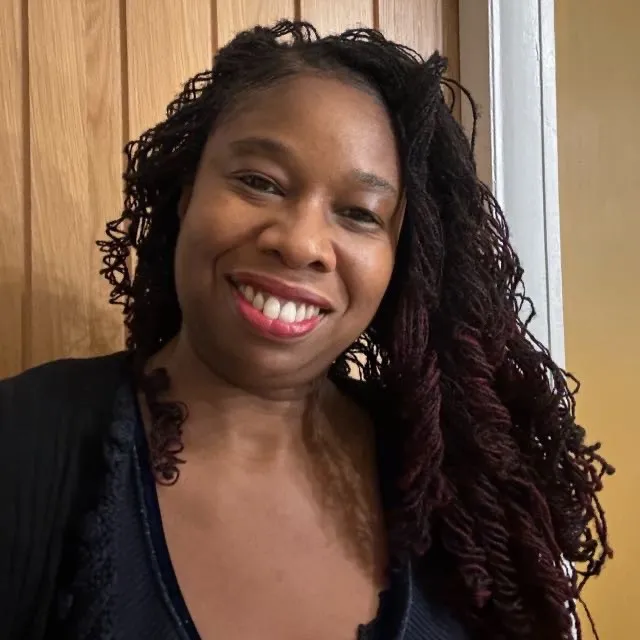Erica McInnis: Bringing African psychology to the UK
Erica McInnis: Bringing African psychology to the UK
Erica McInnis: Bringing African psychology to the UK
Author
When Manchester-based chartered clinical psychologist Dr Erica McInnis first attended the Association of Black Psychologists’ annual conference in the USA, she encountered something profoundly different from her professional training in the UK.
She encountered a psychology rooted in African heritage and a classical African ethical system, shaped by a history of enslavement, pre-colonisation thriving and the civil rights/Black empowerment movement.
“Even though my training was fantastic and gave me many skills, I found much of what I was learning didn’t really apply to my own life, or the lives of many of my clients of African ancestry,” she said. “There were gaps – things that didn’t quite fit.”
And that moment sparked a deep desire to explore African psychology further.
“Without the Churchill Fellowship, I would never have had the opportunity – or the confidence – to learn African psychology at this level, to leave the NHS, or to create something so novel.”
A different approach to African psychology
Just weeks after returning home, Erica founded Nubia Wellness and Healing, a service specialising in offering culturally affirming emotional support within an African psychology framework. She received training and delivered emotional emancipation circles, inspired by what she saw in the States – safe group spaces where people of African ancestry could learn preventative skills, explore racial trauma, recover, and reconnect with cultural identity and strength.
Her work didn’t stop there. Erica went on to launch an online African Psychology School - believed to be the first of its kind internationally - training psychologists, therapists, medics, social workers, educators, interested individuals and lecturers in African psychology theory and practice. It became a platform for online healing.
In the wake of George Floyd’s murder in 2020, universities approached Erica to help decolonise their curricula. Today, she is a visiting lecturer across multiple institutions and has delivered national webinars for the British Psychological Society, such as on decolonising psychology. She is also one of the first clinical psychologists to teach African psychology within doctorate-level clinical training programmes in the UK.
Erica is now seeking funding to grow her services, expand access to healing spaces, and further disseminate the insights sparked by her Fellowship.
“Without the Churchill Fellowship, I would never have had the opportunity – or the confidence – to learn African psychology at this level, to leave the NHS, or to create something so novel. It allowed me to say, 'This perspective matters. It works, and we can build something powerful with it’.”
She encountered a psychology rooted in African heritage and a classical African ethical system, shaped by a history of enslavement, pre-colonisation thriving and the civil rights/Black empowerment movement.
“Even though my training was fantastic and gave me many skills, I found much of what I was learning didn’t really apply to my own life, or the lives of many of my clients of African ancestry,” she said. “There were gaps – things that didn’t quite fit.”
And that moment sparked a deep desire to explore African psychology further.
“Without the Churchill Fellowship, I would never have had the opportunity – or the confidence – to learn African psychology at this level, to leave the NHS, or to create something so novel.”
A different approach to African psychology
Just weeks after returning home, Erica founded Nubia Wellness and Healing, a service specialising in offering culturally affirming emotional support within an African psychology framework. She received training and delivered emotional emancipation circles, inspired by what she saw in the States – safe group spaces where people of African ancestry could learn preventative skills, explore racial trauma, recover, and reconnect with cultural identity and strength.
Her work didn’t stop there. Erica went on to launch an online African Psychology School - believed to be the first of its kind internationally - training psychologists, therapists, medics, social workers, educators, interested individuals and lecturers in African psychology theory and practice. It became a platform for online healing.
In the wake of George Floyd’s murder in 2020, universities approached Erica to help decolonise their curricula. Today, she is a visiting lecturer across multiple institutions and has delivered national webinars for the British Psychological Society, such as on decolonising psychology. She is also one of the first clinical psychologists to teach African psychology within doctorate-level clinical training programmes in the UK.
Erica is now seeking funding to grow her services, expand access to healing spaces, and further disseminate the insights sparked by her Fellowship.
“Without the Churchill Fellowship, I would never have had the opportunity – or the confidence – to learn African psychology at this level, to leave the NHS, or to create something so novel. It allowed me to say, 'This perspective matters. It works, and we can build something powerful with it’.”



